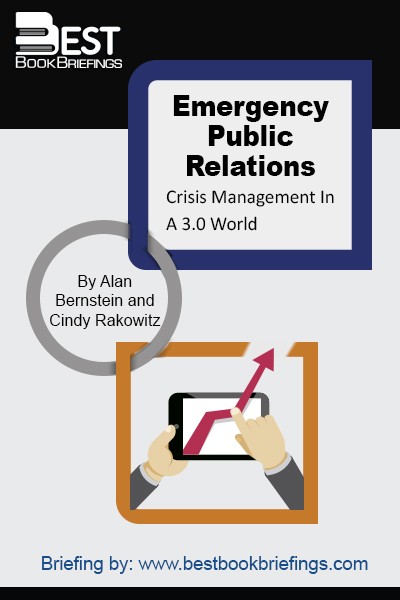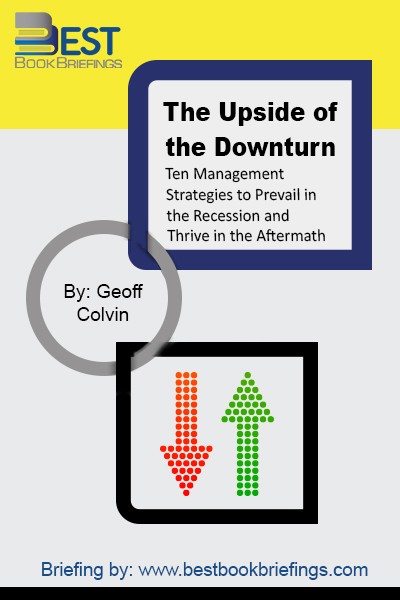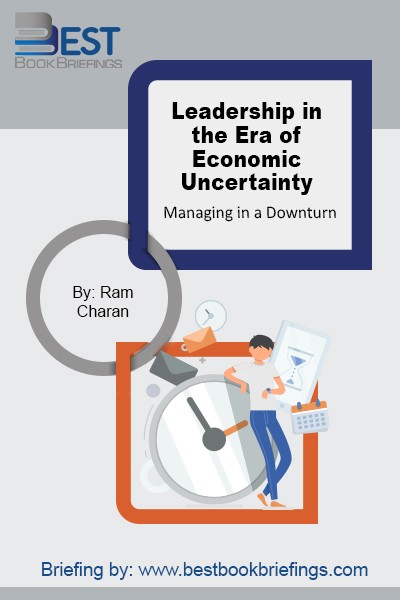Leadership in the Era of Economic Uncertainty
Managing in a Downturn
Editorial Review
The economic peace of the past generation is over. We’re in a war for survival, beset by fear, uncertainty and doubt. As on any battlefield, conditions demand a seriously different kind of leadership from that which is appropriate in peacetime. Leaders must be prepared to make strategic, structural, financial and operational changes—many of them drastic—in a hurry and with information that is at best incomplete. Whether you lead a small group of people, a whole business unit or company, you cannot let yourself be afraid of what is yet to come. So, can you be the leader who figures out what has to be done and makes sure it happens, who finds opportunities in chaos, and whose confidence is contagious?
Book Reviews
Books on Related Topics

The great economic downturn; tumultuous weather patterns; Ponzi schemes; Occupy protesters; political uncertainty; flash mobs and mall melees make daily headlines. When you hear about catastrophic news, do you ever think about how an unanticipated event might affect your business? The crisis mindset requires being “on and ready for battle” 24-7,

During the last few years, chaos has erupted in many places around the world. And that created so many challenges for the governments and public organizations. They tried to overcome these challenges by making budget cuts or asking their employees to give more and increase their productivity, but these short-term solutions

The great thing about a financial crisis and a recession is that they offer everyone the opportunity to be stretched in their current jobs. Certain practices can make the experience especially productive. Confronting the greatest business challenges to occur in generations, you’re being handed a chance to become better. It’s an

Some experts say that Bitcoin and cryptocurrencies are just a scam; others say they're the most important invention since the internet. Thus, whether you are bearish or bullish on crypto, Bubble, or Revolution, the book brilliantly articulates both sides of the argument and offers well-researched insight into the future of blockchain technology.






